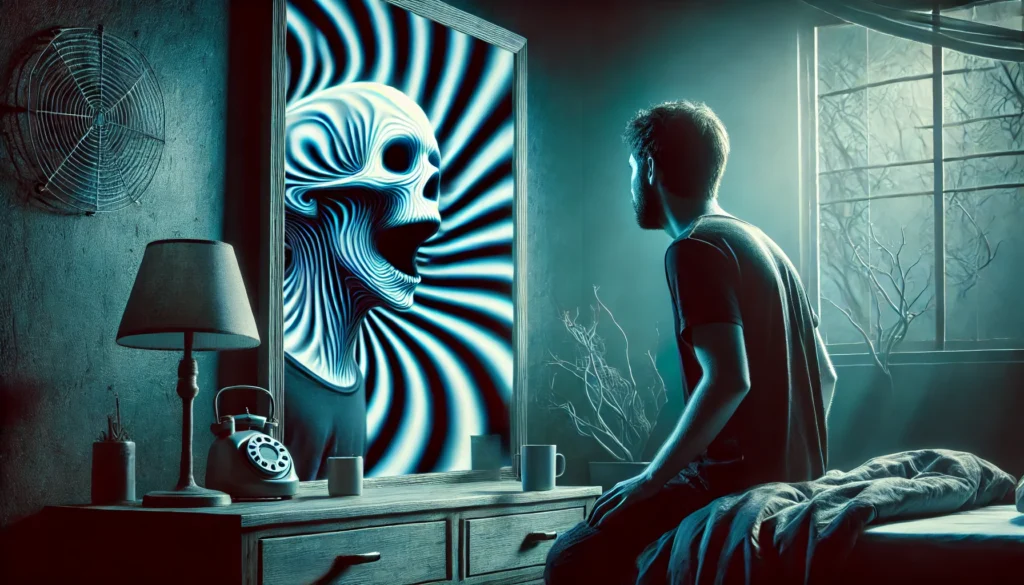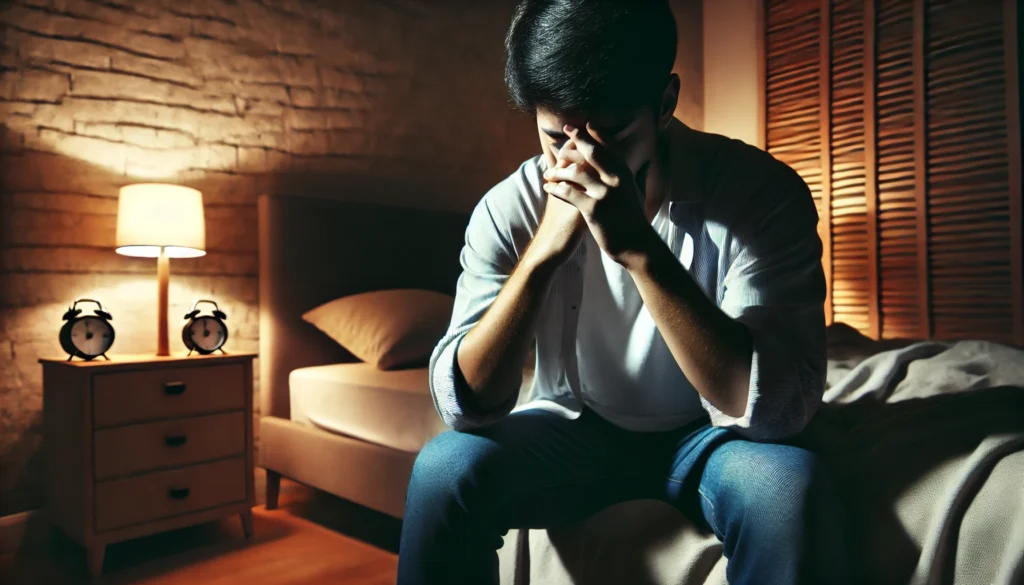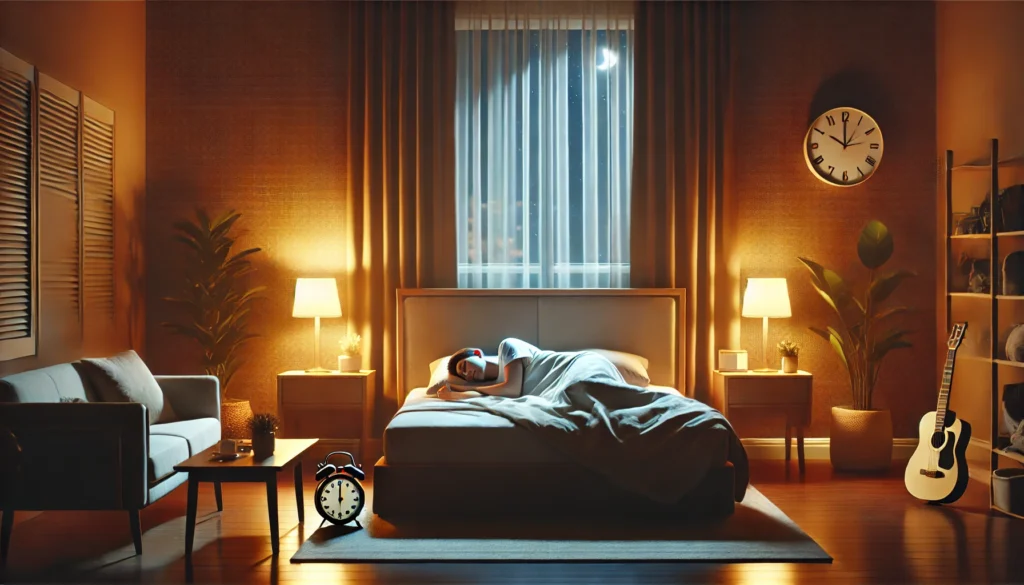Psychosis is a mental health condition characterized by a disconnection from reality. Individuals experiencing psychosis may have difficulty distinguishing between what is real and what is not. Symptoms often include hallucinations, delusions, and impaired thinking. These symptoms can be distressing and disorienting, affecting a person’s ability to function in daily life.
Several factors can trigger psychosis, including mental health disorders such as schizophrenia, bipolar disorder, and severe depression. However, sleep deprivation is a lesser-known yet significant contributor. Understanding the role of sleep deprivation in psychosis requires a closer look at how sleep impacts brain function and emotional regulation.
The Role of Sleep in Mental Health
Sleep is not merely a period of rest but a critical process for maintaining mental health. During sleep, the brain processes emotions and memories, allowing for emotional resilience and cognitive clarity. Lack of sleep disrupts these processes, leading to heightened emotional responses and cognitive distortions.
Sleep also plays a crucial role in regulating neurotransmitters, which are chemicals that transmit signals in the brain. Imbalances in neurotransmitters, such as dopamine and serotonin, can result in mood swings, anxiety, and psychotic symptoms. Regular sleep helps maintain these chemical balances, underscoring its importance for mental stability.
Can Lack of Sleep Lead to Psychosis?
The relationship between sleep deprivation and psychosis is complex but well-documented. Prolonged sleep deprivation can disrupt brain function, leading to symptoms akin to those experienced in psychosis. Research suggests that the brain’s inability to process information correctly due to lack of sleep can cause hallucinations, paranoia, and cognitive distortions.
Moreover, studies have shown that sleep deprivation can exacerbate existing mental health conditions, potentially triggering psychotic episodes in vulnerable individuals. Understanding this link is vital for both prevention and treatment, as it highlights the need for adequate sleep in managing mental health disorders.
You May Also Like: Understanding the Impact of Chronic Sleep Deficiencies

The Science Behind Sleep Deprivation-Induced Psychosis
How Does Sleep Deprivation Cause Psychosis?
Sleep is crucial for the brain to process information and regulate emotions. When deprived of sleep, the brain’s neural pathways become impaired, disrupting normal cognitive functions. Neurotransmitter imbalances, particularly those involving dopamine and serotonin, have been implicated in both sleep deprivation and psychosis. The overstimulation of these neurotransmitters can lead to symptoms like hallucinations and paranoia.
This disruption in neurotransmitter activity affects several brain regions, particularly those involved in perception and judgment. As a result, individuals may experience reality distortions similar to those seen in psychotic disorders. This understanding opens doors for targeted interventions that aim to restore neurotransmitter balance and cognitive function.
The Impact of Sleep on Cognitive Functions
Cognitive functions such as attention, memory, and decision-making are heavily reliant on sleep. Sleep deprivation impairs these functions, leading to errors in judgment and difficulty concentrating. Over time, these impairments can mimic or contribute to psychotic symptoms, complicating the clinical picture for healthcare providers.
Research has shown that sleep deprivation affects the prefrontal cortex, the brain area responsible for higher-order cognitive processes. The prefrontal cortex becomes less active without sufficient sleep, resulting in poor impulse control and distorted thinking. Recognizing these effects is crucial for developing strategies to mitigate the impact of sleep loss on mental health.
When Do Hallucinations from Sleep Deprivation Occur?
Hallucinations typically begin after 24 hours of sleep deprivation but can become more pronounced with longer periods without sleep. Visual and auditory hallucinations are common, with individuals experiencing distorted perceptions of reality. The threshold for hallucinations can vary among individuals, influenced by factors such as stress levels, overall health, and genetic predisposition.
Understanding these individual differences can aid in identifying those at higher risk for sleep deprivation-induced psychosis. Factors such as pre-existing mental health conditions, lifestyle habits, and genetic vulnerabilities play a role in how sleep deprivation affects an individual. Tailoring interventions to these factors can enhance their effectiveness.

Symptoms and Duration of Sleep Deprivation Psychosis
Recognizing Sleep Deprivation Psychosis
Symptoms of sleep deprivation psychosis can mirror those of other psychotic disorders. Key indicators include:
- Hallucinations: Sensory experiences that appear real but are created by the mind. These can be visual, auditory, or tactile, leading to confusion and fear.
- Delusions: Strong beliefs that are not grounded in reality. These beliefs can be persistent and resistant to logical reasoning, affecting relationships and decision-making.
- Paranoia: An irrational fear or suspicion of others. This heightened sense of threat can lead to social withdrawal and increased anxiety.
- Cognitive Impairment: Difficulty concentrating, poor memory, and impaired judgment. These symptoms can hinder daily functioning and exacerbate feelings of frustration and helplessness.
The Influence of Chronic Sleep Deprivation
Chronic sleep deprivation can lead to long-term cognitive and psychological issues. Unlike acute sleep deprivation, which might resolve with adequate rest, chronic deprivation can cause lasting changes in brain function. These changes may require more intensive interventions to address, including therapy and medication.
Identifying chronic sleep deprivation requires careful assessment of sleep patterns and lifestyle factors. Healthcare providers must consider the cumulative effects of sleep loss and its potential to exacerbate or contribute to existing mental health conditions. Early intervention is key to preventing the progression of symptoms.
How Long Does Sleep Deprivation Psychosis Last?
The duration of sleep deprivation psychosis varies, often depending on the length of sleep deprivation and individual resilience. In most cases, symptoms subside once regular sleep patterns are restored. However, chronic sleep deprivation may lead to persistent cognitive and psychological issues, requiring professional intervention.
Recovery from sleep deprivation psychosis involves more than just restoring sleep. It requires a comprehensive approach to address the root causes and contributing factors. This might include lifestyle changes, therapy, and medication, depending on the severity of symptoms and the individual’s overall health.
Addressing and Treating Sleep Deprivation Psychosis
Effective Interventions
Addressing sleep deprivation psychosis involves both immediate and long-term strategies:
- Sleep Restoration: Prioritizing sleep is the most effective remedy. Ensuring sufficient sleep can quickly alleviate psychotic symptoms. Techniques like sleep scheduling and creating a bedtime routine can help re-establish healthy sleep patterns.
- Cognitive Behavioral Therapy (CBT): CBT for insomnia can help re-establish healthy sleep habits and address underlying anxieties that contribute to sleep loss. This therapeutic approach focuses on changing negative thoughts and behaviors related to sleep, promoting relaxation and restfulness.
- Medication: In severe cases, antipsychotics or sleep aids may be prescribed to manage symptoms and induce sleep. These medications should be used under medical supervision, ensuring they complement other therapeutic approaches.
The Role of Lifestyle Changes
Lifestyle changes play a crucial role in preventing and treating sleep deprivation psychosis. Incorporating regular physical activity, maintaining a balanced diet, and reducing caffeine intake can improve sleep quality. Additionally, creating a sleep-conducive environment, free from distractions and stressors, supports restful sleep.
Mind-body practices such as yoga and meditation can also enhance sleep by promoting relaxation and reducing stress. These practices encourage mindfulness and present-moment awareness, which can counteract the racing thoughts and anxiety that often accompany sleep disturbances.
Preventive Measures
Preventing sleep deprivation psychosis involves adopting healthy sleep practices:
- Consistent Sleep Schedule: Going to bed and waking up at the same time daily helps regulate the body’s internal clock. This consistency supports the natural sleep-wake cycle, improving sleep quality over time.
- Sleep Hygiene: Creating a restful environment, limiting screen time before bed, and avoiding caffeine can promote better sleep. These practices reduce sleep disturbances, allowing for deeper and more restorative sleep.
- Stress Management: Techniques such as mindfulness, meditation, and exercise can reduce stress and improve sleep quality. These activities foster emotional resilience, making it easier to cope with life’s challenges without sacrificing sleep.

Future Directions and Implications
Research Opportunities
Understanding sleep deprivation’s impact on mental health is crucial as we navigate increasingly demanding lifestyles. Ongoing research aims to uncover the precise mechanisms by which sleep deprivation affects brain function, potentially leading to new interventions and treatments. Innovations in sleep technology and neuroscience may offer insights into personalized sleep therapies that address individual needs.
Public Health Initiatives
Public health initiatives emphasizing the importance of sleep could mitigate the risks associated with chronic sleep deprivation. Educating communities about sleep’s role in mental health can promote healthier lifestyles and reduce the stigma surrounding sleep disorders. Collaborative efforts between healthcare providers, educators, and policymakers can foster environments that support healthy sleep habits.
Implications for Mental Health Services
The relationship between sleep and mental health underscores the need for integrated care approaches. Mental health services must consider sleep as a vital component of treatment, incorporating sleep assessments and interventions into care plans. By prioritizing sleep, healthcare providers can enhance treatment outcomes and support long-term mental well-being.
Conclusion
Sleep deprivation poses significant risks to mental health, with the potential to induce psychosis-like symptoms. Recognizing the signs and prioritizing sleep can prevent the onset of severe mental health issues. By adopting healthy sleep practices and seeking professional help when necessary, individuals can safeguard their mental well-being. As research continues to unravel the complexities of sleep and mental health, staying informed and proactive remains key to managing and preventing sleep deprivation-induced psychosis.
Understanding the intricate relationship between sleep and mental health empowers individuals and communities to prioritize rest as a cornerstone of wellness. Through education, lifestyle changes, and supportive interventions, we can address the challenges of sleep deprivation and promote healthier, more fulfilling lives.
Further Reading:
ONLY IN DREAMS: a case report of sleep deprivation psychosis
Important Note: The information contained in this article is for general informational purposes only, and should not be construed as health or medical advice, nor is it intended to diagnose, prevent, treat, or cure any disease or health condition. Before embarking on any diet, fitness regimen, or program of nutritional supplementation, it is advisable to consult your healthcare professional in order to determine its safety and probable efficacy in terms of your individual state of health.
Regarding Nutritional Supplements Or Other Non-Prescription Health Products: If any nutritional supplements or other non-prescription health products are mentioned in the foregoing article, any claims or statements made about them have not been evaluated by the U.S. Food and Drug Administration, and such nutritional supplements or other health products are not intended to diagnose, treat, cure, or prevent any disease.


